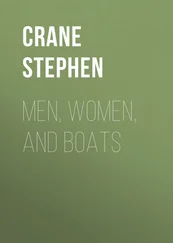He began to fear the blonde woman like sleep you don’t understand. She asked what was in his satchel. He showed her two books bound in calf; she shrugged, and said her beloved was now under the influence of a man who believed in reincarnation and was a dime-museum speechmaker and called himself the cerebellum of Christ but could not spell Calvary. A passel of rogues will try to make use of that good man Coxey.
Alexander asked where the Indian had gone. She said she had told Alexander this already.
He said, Two Indian wanderers, perhaps a child between them.
No, said the blonde woman. The woman was a white woman.
Alexander felt a long chill across his face. He threw the apple into the fire.
You throw away food? said the blonde woman.
Will Coxey’s marchers all come from Ohio? Alexander asked as if to say, Don’t talk to me about an apple — and felt terribly watched and cold and inflamed as well and felt the sweat in his smooth palms.
No, said the woman. They say marchers will come from all over the United States. Why do you ask?
Because I was thinking of something else, said the young man.
They say he is worth two hundred thousand dollars. One marcher for every dollar by the time they reach Washington. They will force Congress to help the unemployed.
Was the Indian armed? Alexander asked.
Well, she had thought he had a pistol in his pocket but it was a hunk of dried meat. Alexander contemplated the large, damp branch and the lowering fire. But he did have a pistol in his saddlebag, said the woman.
In his saddlebag, said Alexander.
We had been asleep, we already remember, but this might prove our patented way of being awake. As when a thing is done to us, and instead we are brought closer together and see some bend of will by which so far from our being acted upon, the responsibility belonged to us, and no hassle at that.
Big Foot Porcupine; or anyway, Big Shoe. The woman asked to sleep against him in the late February stillness. He said it was against his religion and at once corrected himself— those were not his words, surely. His thighs were resigned with cold, his mackinaw bulky. He felt behind him the tuck of her hard arms in the taut winding of her blanket, and after a mysterious time which was motion both absent and present she reached one slow arm around his ribs and he found that he took her hand between the thumb and palm of his woolen glove and she seemed to press a ring on his finger. They murmured with the soft, bed clarity of wife and husband. Where, then, was Jacob Coxey? Why with his family in Massillon, Ohio, three hundred miles from here, two hundred and eighty to be exact.
Anger, horror, pain, curiosity gathered him up into some darkling person and he knew he would sleep in the cold, despite Margaret, despite the Indian wherever his eastward frontier had gotten to. Alexander was thinking of geometry, of all things, and his loins felt better than he could have said. Have you borne a child? he asked the woman over his shoulder, the late winter and the undreamed solidity of near, dark trees cold against his eyeballs.
He asked me that, she told him. He said he had thought there was more time but he had been absorbed in his studies of secret force and of earth veins and mountain messages and mixtures and absorbed in this woman of his from the East, to the cost of his People, yet also forgetting this woman who was sometimes all he remembered from hour to hour. His studies are for his people, but his march is not revolutionary like Jacob Coxey’s which will be an army as great as any Union.
Your news overwhelms me, said Alexander. Your heart is with the workers, said the woman; trust it.
But Alexander had not meant Coxey’s march of the unemployed. But have you borne a child? he said. No, she said, I have not borne a child, though I would have done so for him, though I am a fallen person anyway.
Do you want to be married? asked Alexander.
He thought of what the future expected. New thoughts shifted this trip as if the land it was grounded on — a land of dreams, he had once read to Margaret — mattered no whit more than farmers clamoring for paper money or Idaho silver miners forcing recognition of their union or railway-car workers getting a company model-town to house their families at dubious rent. A curiously compelling map grew like land in Alexander’s mind containing it (but which containing which?) that moved — this diagram of distances moving if he chose but making him choose — and he could not tell the woman that Margaret over the magnetic slopes of this darkling state rested but was in motion restlessly toward home while talking to a Jacob Coxey whom this woman behind him loved and had brought to Alexander by converging lines from Massillon in the west and from some bank of the Juniata in the south or southwest, while Alexander’s various trek for news and for Margaret was west while hers, upon a parallel equally various, came east, pursued (no question) along another parallel by a man with a pistol who was ahead of her, and was between her and this Alexander who went out to meet her: yet what if even now, and east of here, she was fingering a Navajo silver buckle passing through Pennsylvania on a sleeping train whose parallels of track curved some collision course of war or the American continent atip toward unknown commerce (west or east, inertial calculi of ours could trick suns into dramatically dying in the direction of morning if our cost-benefit figures arrive at such results for the sake of World’s Fair or parallel answer to multiple question) — and when he said to this now silent woman, This Indian is not my enemy unless I choose. ., and got no reply except a whole bodily pulse coming into his spine from possibly more than the woman… in these coordinated parallels that could lean like a curve-fleshed parallelogram or converge into some terrific clusterhood, Alexander eased over to the quite exhausted woman he had not bothered to ask about her home and about what she, a "fallen person," did here in the vicinity of her at least former home of Selinsgrove where the beloved had been hardly more than born, according to Alexander’s information — and he tipped her dozing chin and smelt on her breathing raw potato’s moistly glimmering root, and kissed her lips, and turned back to, briefly, a diagram until sleep caught him up loins and all into that gathered voice that could include what the future expected, conferring with him as to whether (damn all this land of dreams that lacked light though not geometry which itself equaled or was in the way of geography and of seeing clear, so he wondered what Margaret looked like now and if she was big with child), conferring with that gathered voice as to whether he would go to Paris with his elegant cousin who wished to study epidemics — or, as an obvious possibility, would not go to Paris but live as he and the future tacitly had agreed he would.
The woman spoke and hummed and spoke in sleep, their sleep it seemed: "He said he carried in him unknown mixtures spirited from a mountain that moved with shapes fine as snakes and some said formed by them and through human flesh and weather that sometimes came down a long, long cosmic room from a North he had once thought timeless, yielding spirals grown dense and tight as the inside of a tree bole that might help us or end all weather or might bore holes in us as in his mother who had died of such a demon-hole that moved around her head from forehead to top and back — and these mixed spirits or rays (though not visible like sun) he carried some of in him— in him! (I nearly laughed, we were hungry, we had already forgotten why we were sitting by that tireless riverbank, and he brought out a potato and an apple, and later his saddlebag proved to hold a pistol with devices or signs cut into the metal so as to make the finger fear touching them could make the piece go off) until Alexander did not know who talked to who, but thought the woman would not steal from his old black satchel his shirt or his forgotten long underwear or his books, his three books — the two diaries at this long instant of embrace humanly useless with their neutral needlework reports of Chapultepec passion or sun-swallowing dream or, as yellowing perhaps as one of President Lincoln’s greenback salary-warrants, that strange sheaf of foolscap music with Italian words shaken by a Thunder Dreamer coolly under the nose of a lean bicyclist-botanist at a remote trading post — and always, money-getting Democrats from rude wigwam to Congress hall, easing past mountains of, what was it? salt and iron, lead and silver; while in this woman’s orie-armed embrace he dreams of freedom, yet not from her, though he would never see her again more than he saw her now curled not so uncomfortably behind him: freedom in fact from those impediments of Margaret’s months, for let life start and let’s go home, to where (with what help from the person behind him he could not think, asleep or half-asleep) he heard himself read to a young girl he had named before her birth, words (words words) recited to her by her father, of motion that could not stop and so was stopped for, in some sense spaced so intimately far to one side current history that the name of this child came to him who looked at him from the near future bearing naturally the name of this poor, strong woman behind him humming like a cello in her apparent sleep now, and Margaret would accept that name, he would make sure of that.
Читать дальше












